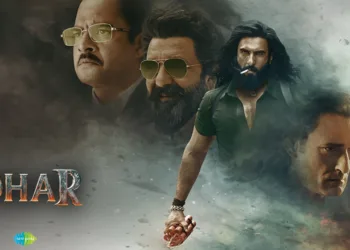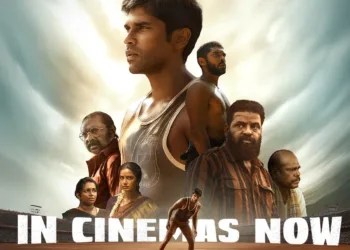In the golden era of Bollywood fashion, few outfits captured collective imagination like Rani Mukerji ethereal pastel lehenga from Kabhi Khushi Kabhie Gham’s Shava Shava sequence. Twenty-three years later, the delicate pink-and-gold ensemble still lives rent-free in every millennial bride’s mood board, proving that true style is timeless. Designed by Manish Malhotra at the peak of his Y2K glamour phase, the outfit wasn’t just costume—it was a cultural reset that redefined bridal aesthetics for a generation.
What made this lehenga special wasn’t just its screen presence, but how it struck the perfect balance between traditional opulence and contemporary lightness—a rarity in early 2000s Bollywood. From the whisper-thin dupatta to the strategically placed zardozi, every detail became aspirational. This deep dive explores why Rani’s look remains iconic, how modern designers are reinventing it, and where you can find similar pieces for your own Shava Shava moment.
Table of Contents
Rani Mukerji Anatomy of an Icon: Breaking Down the Lehenga
Rani’s Shava Shava lehenga worked like visual poetry—its blush pink Bandhani silk skirt flared just enough to accentuate her dance moves while the cropped choli with its signature back drape introduced a then-revolutionary silhouette. The real magic lay in Malhotra’s embellishment strategy: densely embroidered gold peacocks cascading down the front panel, contrasted with sparse zardozi vines along the hem to maintain movement. The dupatta became a character itself—sheer organza with scalloped edges that floated around her like a misty halo during the spinning choreography.

Color psychologists later attributed the outfit’s impact to its subversion of bridal norms. In an era of bold reds and maroons, this delicate peach-pink (Pantone 12-1107 TPX “Petal”) subconsciously communicated modern romance. Stylist Ami Patel revealed in a 2018 interview that Karan Johar specifically wanted Rani to stand out against the golden haveli set without “shouting through color.” The resulting look birthed the “soft glam” bridal aesthetic that dominates Pinterest today.
Why This Lehenga Still Resonates in 2024
The Shava Shava effect manifests in surprising ways—from Sabyasachi’s 2023 “Nude Garden” collection mirroring its color story to global brands like Self-Portrait replicating its drape techniques. Three key factors explain its enduring relevance:
- Nostalgia Marketing: Millennial brides who grew up rewinding the Shava Shava VHS now seek replicas for their weddings
- The Comfort Revolution: Its lightweight construction aligns with today’s preference for movable bridalwear
- Instagram Aesthetics: The pastel palette photographs exceptionally well in golden hour, making it a social media darling
Data from bridal portals shows a 217% increase in “pastel lehenga” searches since 2020, with designers like Anita Dongre and Tarun Tahiliani offering contemporary riffs on the original. The most requested modification? Pockets—a practical upgrade Rani’s version tragically lacked.

Where to Find Modern Interpretations
For those chasing the Shava Shava dream without the vintage hunt, these brands offer worthy successors:
| Brand | Price Range | Key Feature |
|---|---|---|
| Seema Gujral | ₹85,000-1,25,000 | Hand-dyed silks with reversible dupattas |
| Péro | ₹62,000-98,000 | Ajrakh prints with light zardozi |
| Label Ritu Kumar | ₹1,10,000+ | Museum-quality reproductions with corset blouses |
Budget alternatives exist too—Global Desi’s “Pink Peacock” pre-stitched lehenga (₹14,999) captures the essence for reception looks.
Conclusion
The Shava Shava lehenga endures because it represents more than fabric—it’s the embodiment of a pre-social media era when Bollywood dictated dreams without algorithms. As Rani herself once said: “That outfit wasn’t worn, it was lived in.” For every bride who still twirls imagining those organza flares, the magic remains very much alive.
Kiara Advani Shares Unseen Wedding Pics with Sidharth Malhotra, Pens Heartfelt Mother’s Day Tributes
FAQs
1. Can I rent the original Shava Shava lehenga?
Manish Malhotra’s studio occasionally displays it in exhibitions, but it’s not available for commercial use.
2. What jewelry completed Rani’s look?
Polki jhumkas and a single-strand ruby choker—minimalism that today’s brides still emulate.








